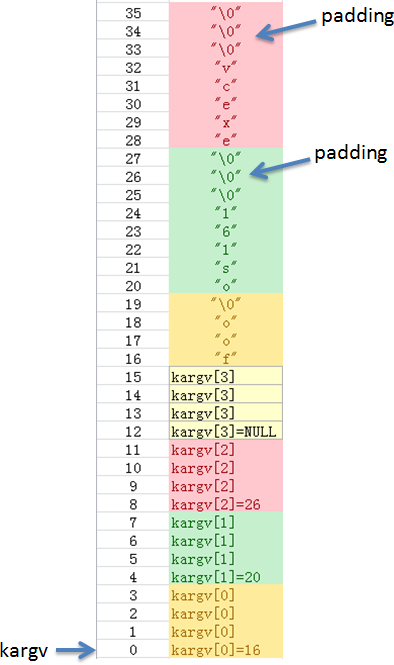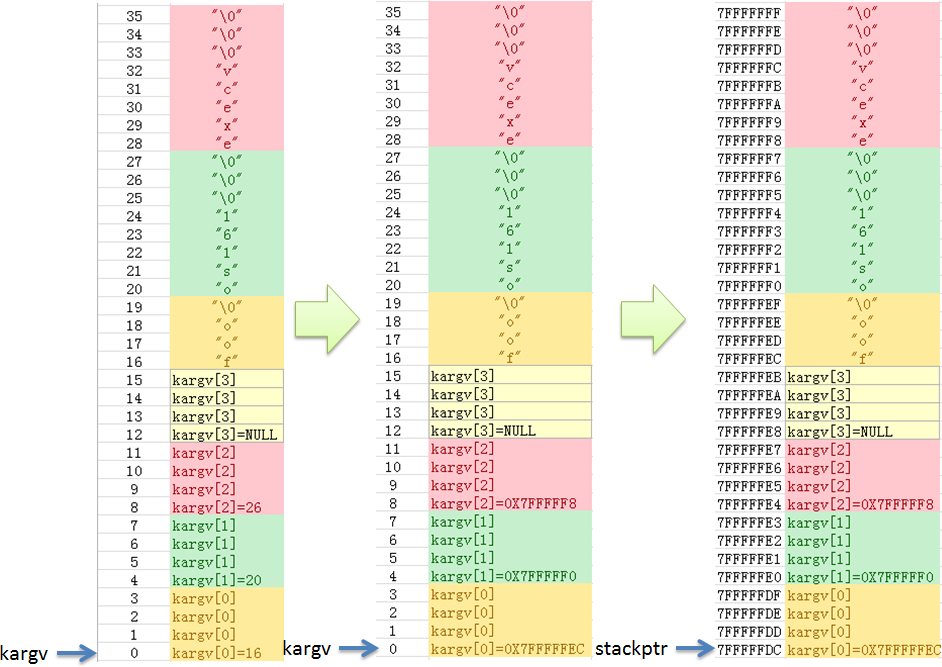Basically, execv do more or less the same thing with runprogram in
$OS161_SRC/kern/syscall/runprogram.c. The overall flow of sys_execv are:
- Copy arguments from user space into kernel buffer
- Open the executable, create a new address space and load the elf into it
- Copy the arguments from kernel buffer into user stack
- Return user mode using
enter_new_process
Note that I highlighted step 1 and 3 since they are the trickiest part of
execv, step 2 and 4 are just the same with runprogram.
Format of uargs
The first argument is progname (e.g., /testbin/argtest), and the second
argument is uargs, it's an array of pointers, each pointer points to a user
space string. The last pointer of uargs is NULL.
Since we don't know how many arguments are there in uargs, we need to copy
the pointers one by one using copyin until we encounter a NULL.
Copy arguments into kernel buffer
In whichever way to do this, one of step 1 and 3 must be complicated. I choose to carefully pack the arguments into a kernel buffer and then just directly copy this buffer into user stack in bulk. Note that in MIPS, pointers must be aligned by 4. So don't forget to padding when necessary
For convenience, assume that arguments are {foo, os161, execv, NULL}.
Then after packing, my kernel buffer looks like this:

Typo: kargv[2] should be 28, instead of 26.
Note that kargv[i] stores the offset of the i'th arguments within the
kargv array, since up to now we don't know their real user address yet.
Copy the arguments into user stack
Why user stack, not anywhere else? Because it's the only space we know for
sure. We can use as_define_stack to get the value of initial stack pointer
(normally 0x80000000, aka USER_SPACE_TOP). So what we do is
- Fill
kargv[i]with actual user space pointer, and - Copy
kargvarray into the stack - Minus
stackptrby the length ofkargvarray.
Note that we must modify kargs[i] before we do the actual copy,
otherwise some weird bus error or TLB miss will occur.
The steps are shown as follows (here we assume stackptr initial value is
0x80000000):
